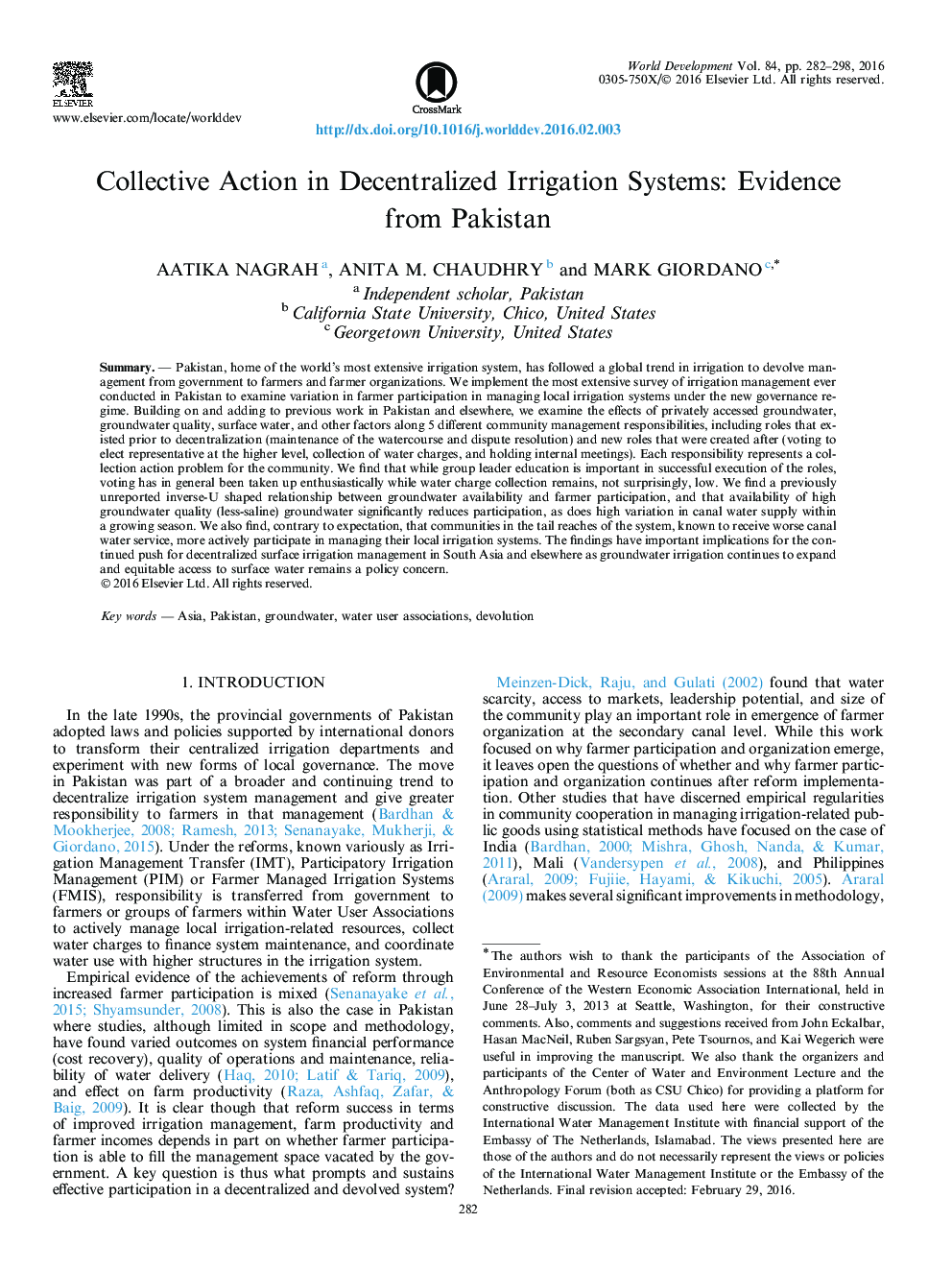| کد مقاله | کد نشریه | سال انتشار | مقاله انگلیسی | نسخه تمام متن |
|---|---|---|---|---|
| 7392600 | 1481134 | 2016 | 17 صفحه PDF | دانلود رایگان |
عنوان انگلیسی مقاله ISI
Collective Action in Decentralized Irrigation Systems: Evidence from Pakistan
ترجمه فارسی عنوان
اقدام جمعی در سیستم های آبیاری دگرجزیره: شواهد از پاکستان
دانلود مقاله + سفارش ترجمه
دانلود مقاله ISI انگلیسی
رایگان برای ایرانیان
کلمات کلیدی
آسیا، پاکستان، آبهای زیرزمینی، انجمن کاربران آب، تحریم،
موضوعات مرتبط
علوم انسانی و اجتماعی
اقتصاد، اقتصادسنجی و امور مالی
اقتصاد و اقتصادسنجی
چکیده انگلیسی
Pakistan, home of the world's most extensive irrigation system, has followed a global trend in irrigation to devolve management from government to farmers and farmer organizations. We implement the most extensive survey of irrigation management ever conducted in Pakistan to examine variation in farmer participation in managing local irrigation systems under the new governance regime. Building on and adding to previous work in Pakistan and elsewhere, we examine the effects of privately accessed groundwater, groundwater quality, surface water, and other factors along 5 different community management responsibilities, including roles that existed prior to decentralization (maintenance of the watercourse and dispute resolution) and new roles that were created after (voting to elect representative at the higher level, collection of water charges, and holding internal meetings). Each responsibility represents a collection action problem for the community. We find that while group leader education is important in successful execution of the roles, voting has in general been taken up enthusiastically while water charge collection remains, not surprisingly, low. We find a previously unreported inverse-U shaped relationship between groundwater availability and farmer participation, and that availability of high groundwater quality (less-saline) groundwater significantly reduces participation, as does high variation in canal water supply within a growing season. We also find, contrary to expectation, that communities in the tail reaches of the system, known to receive worse canal water service, more actively participate in managing their local irrigation systems. The findings have important implications for the continued push for decentralized surface irrigation management in South Asia and elsewhere as groundwater irrigation continues to expand and equitable access to surface water remains a policy concern.
ناشر
Database: Elsevier - ScienceDirect (ساینس دایرکت)
Journal: World Development - Volume 84, August 2016, Pages 282-298
Journal: World Development - Volume 84, August 2016, Pages 282-298
نویسندگان
Aatika Nagrah, Anita M. Chaudhry, Mark Giordano,
